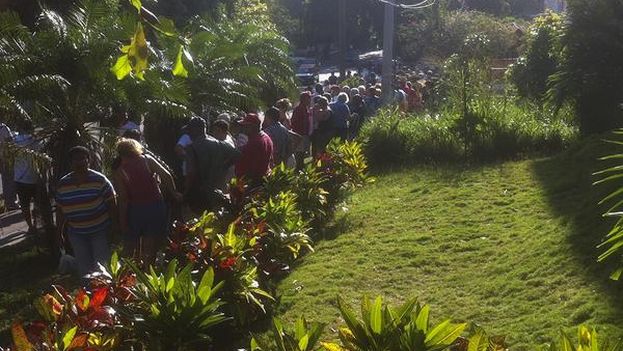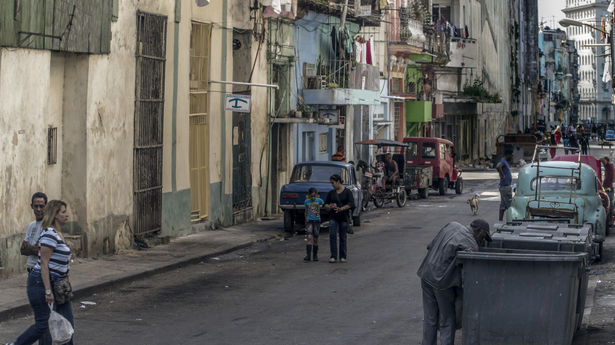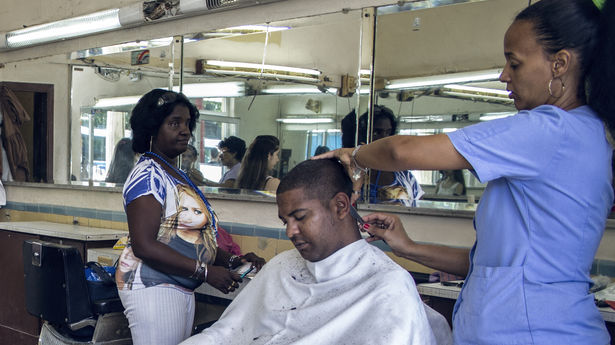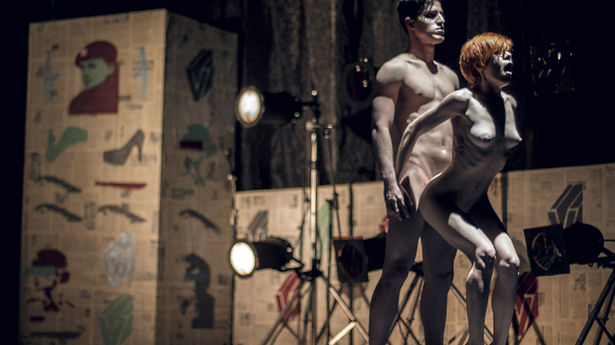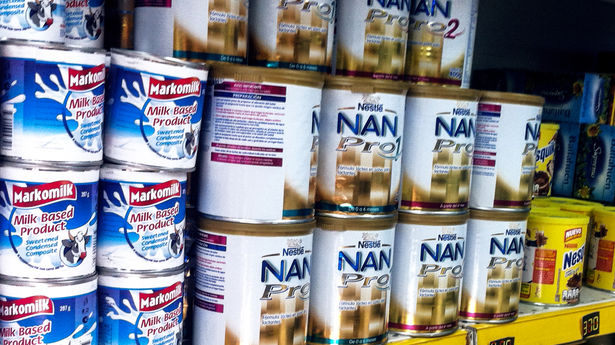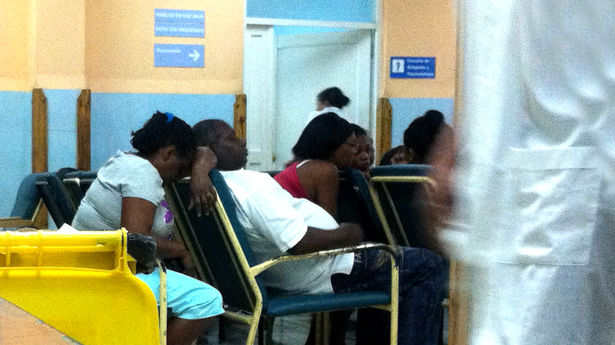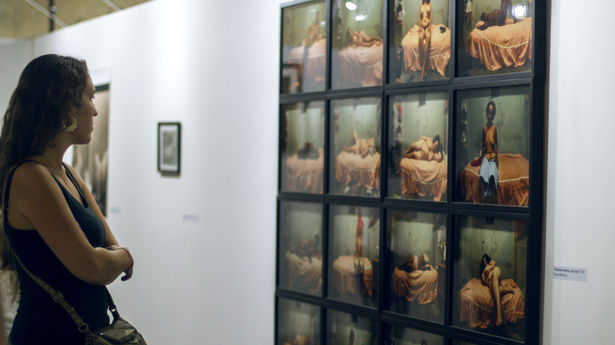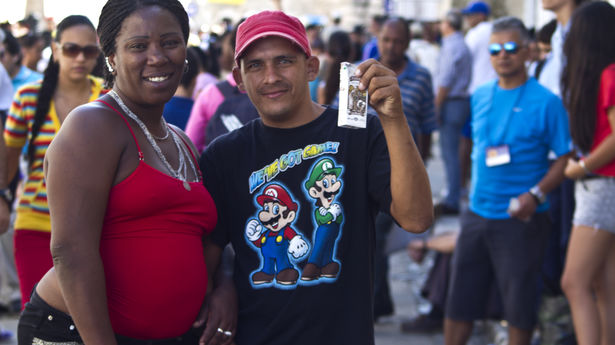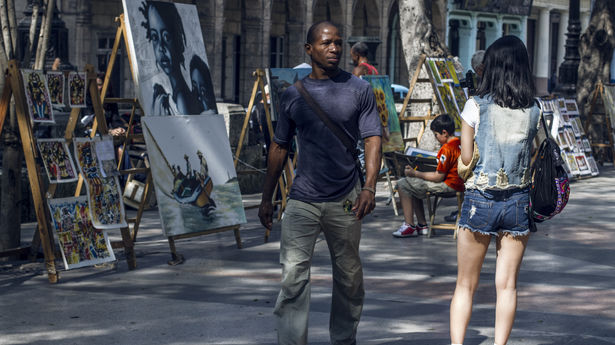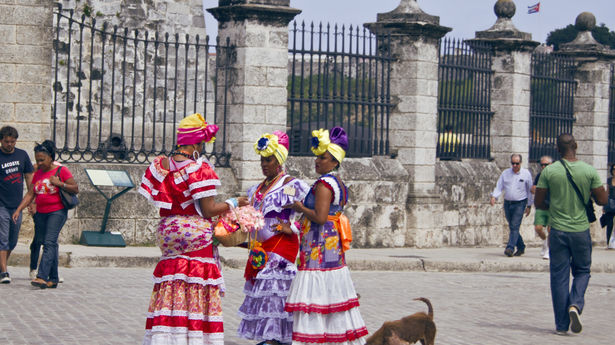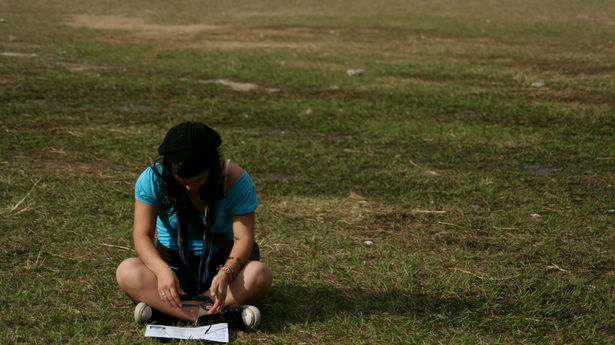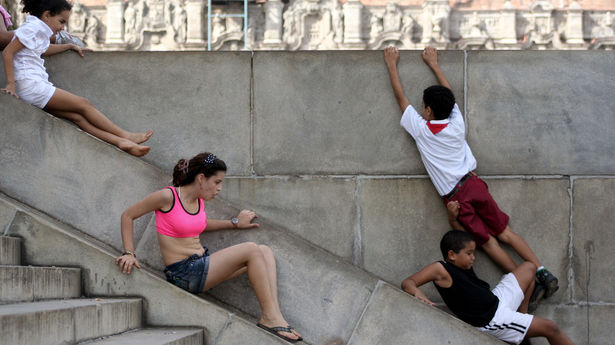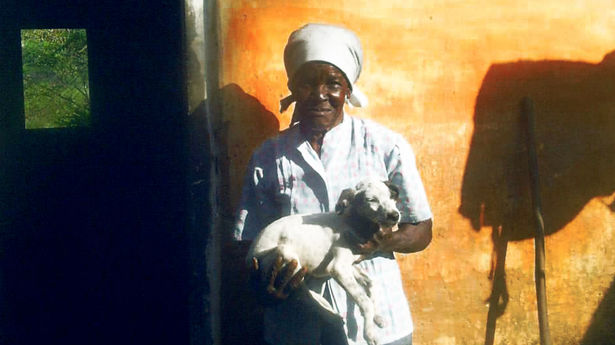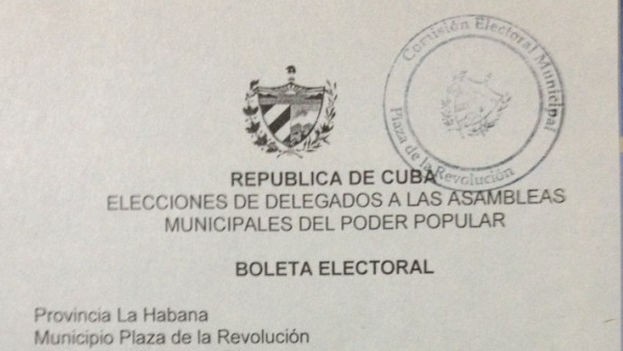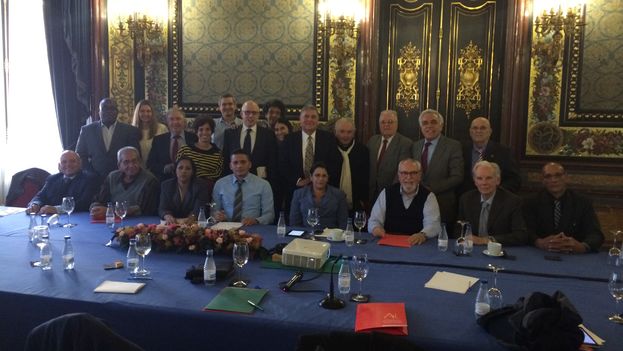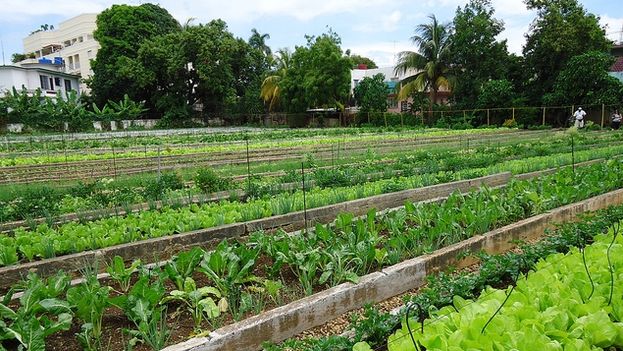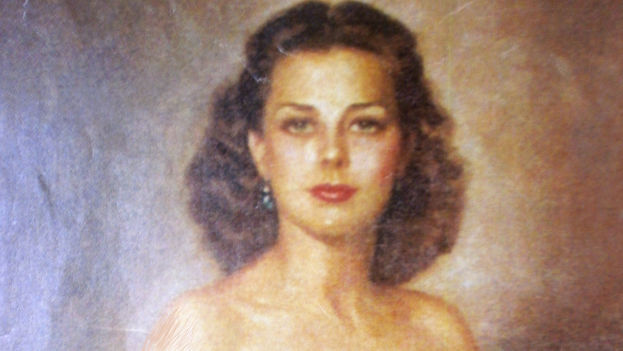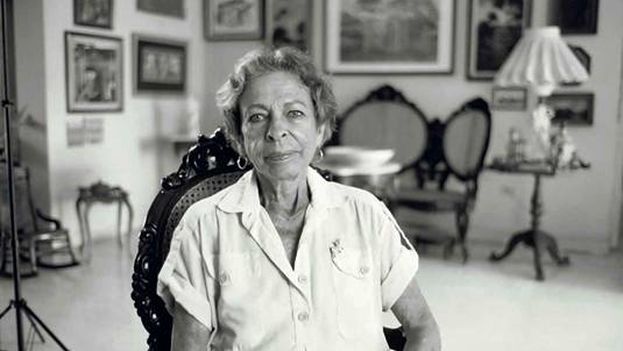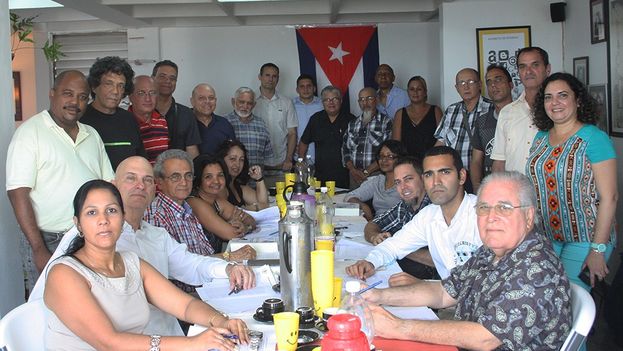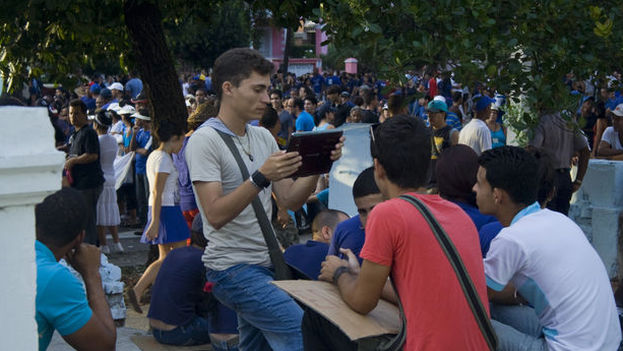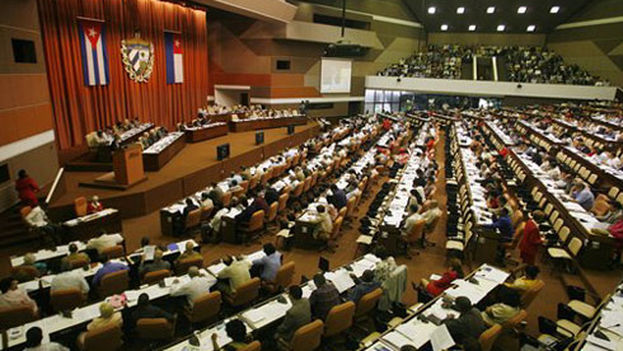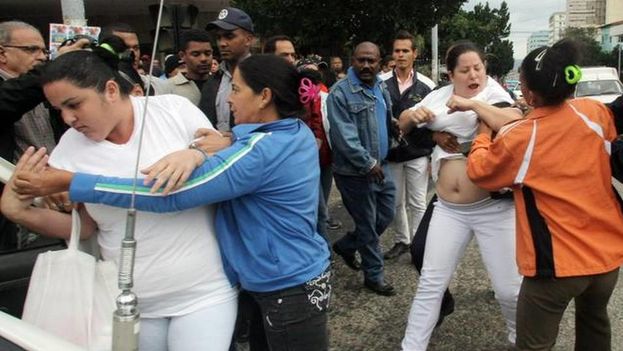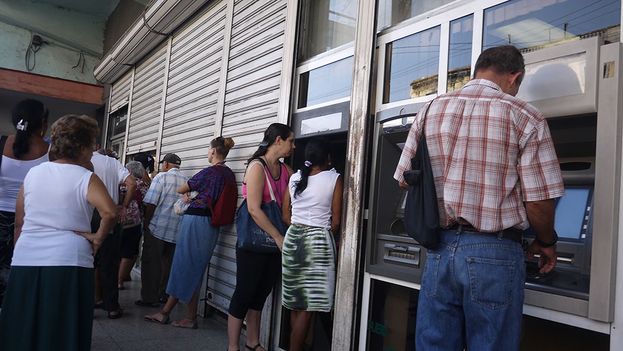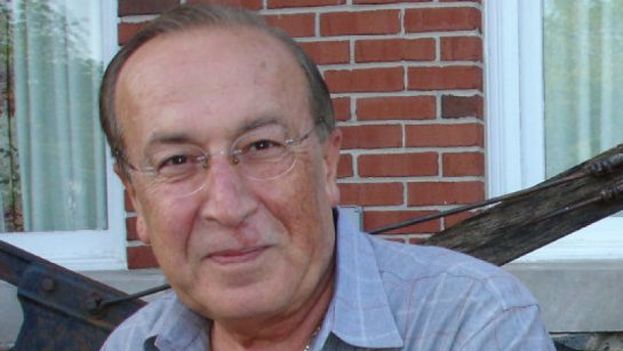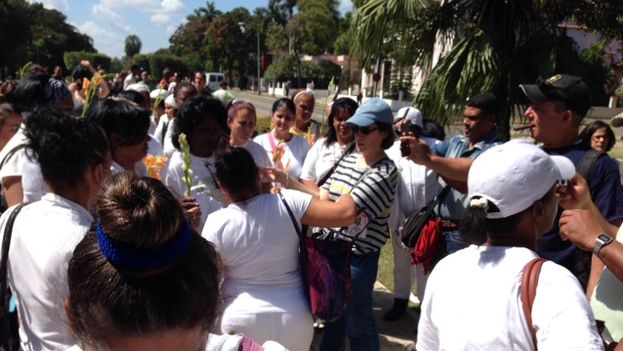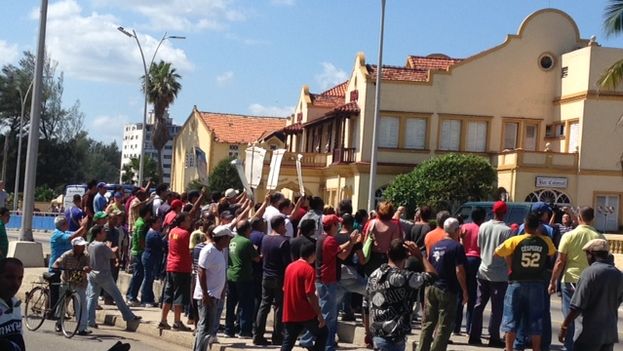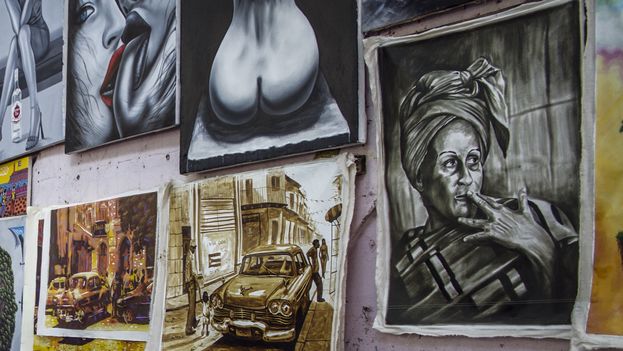
14ymedio, Rosa Lopez, Camagüey, 8 March 2015 — On the kitchen table is a smeared plate of pink meringue. It’s been there since Friday afternoon, when she brought that piece of cake from the party for Women’s Day. After the celebration, the music and a boring speech from the factory director, Magaly returned to the routine of her life. To a house where a double workday awaited her, with no union, no protective laws, much less a salary. Almost sixty, she’s learned that the speeches about gender equality are just that, speeches.
In the distant year of 1869, within a few hours of the proclamation of the Guaimaro Constitution, Ana Betancourt launched a phrase that would mark women’s illusions with the processes of political change in our country. “Citizens: the woman in the dark and quiet corner of the house waited patiently and with resignation for this beautiful hour in which the new revolution broke her yoke and continue reading
Which is what Magaly felt as a teenager when she went to a meeting of the Federation of Cuban Woman (FMC) for the first time. In those years she was also a part of a squad in the Territorial Troops Militia (MTT), and at the same time she did volunteer work almost every weekend and was raising two small children.
Those were the days of the so-called “orchestra woman” this graduate in Chemical Engineering says now, with disappointment — a time when women thought they could play all the instruments at once. Her disenchantments are shared with many women who gave the best years of their lives to a process where emancipation was only achieved on paper in official reports. “Before every problem where I needed some kind of protection for being a woman, I found myself helpless,” remembers Magaly, sitting in the living room of her house, an old mansions with cracked walls in the city of Camagüey.
“I experienced moments of domestic violence with a husband who was obsessed with me, but the police would never give me a restraining order“
She details the situations where she felt the weight of her ovaries like a difficult burden to bear. “I experienced moments of domestic violence with a husband who was obsessed with me, but the police would never give me a restraining order and when I complained they told me that we had to ‘work things out ourselves.’ Imagine how frightened I was, barely able to go outside.”
She became an expert in hiding bruises behind dark glasses and looked for a lover who “would punch out the abuser, and so it was resolved, because here it’s only done man to man.”
“When I divorced that husband, just to top it off, they only gave me a monthly support payment of sixty pesos [roughly $2.40 US] for each child. What could I do with that?” she asks, upset. Although in Cuba child support after a divorce is obligatory, the amount is determined based on the legal earnings of the father, or of his salary in Cuban pesos. In a society where the Government itself recognizes that wages are not people’s principal source of income, calculating support in this way puts the main economic burden of raising children on the mothers’ shoulders – who retain custody in most cases.
In Magaly’s family the women were always strong and fighters, she says, while showing some photos from the past. “My grandmother participated in 1923 in the First National Women’s Congress, when there were 31 women’s associations in the different provinces.” It was the first meeting of this type in Latin American and in its discussions they demanded the chance to campaign for women’s suffrage. The voices of women were also heard in getting laws to protect children and to achieve equal social, political and economic rights.
After reviewing the history of the women in her family tree, Magaly says that “when the Revolution triumphed my mother was very excited by the advantages this would bring us.” However, the consensus opinion is that with the speeches about emancipation that accompanied the process from its first day, women achieved major representation in public positions and a double workday, but very little changed inside the home.
“All my friends spent the day working on domestic issues, some even left their jobs to be able to dedicate full time to their homes,” says this professional who makes a living reselling products she manages to extract illegally from the factory where she works. She clarifies her statements with a dose of irony, “It’s true that having an abortion became very easy and divorce is achieved at the blink of an eye, but the machismo structure of society remains intact, leaving us the role of almost-slaves in the home.”
“Having an abortion became very easy and divorce is achieved at the blink of an eye, but the machismo structure of society remains intact”
“And the FMC?” she asks loudly. “Well thank you for convening meetings and giving us more tasks to do because that’s all it does.” This in reference to the only women’s organization allowed in the country, founded in August 1960, which today comprises more than four million females. The majority of them have joined the federation in an almost mechanical gesture, very similar to the push making so many Cubans members of the Committees for the Defense of the Revolution (CDR).
Magaly belongs to that generation that grew up surrounded by promises of equality. “Most of my classmates at the university were women, but today a large percentage of them are no longer working.” The economic collapse of the Special Period sent many women who had worked in a company or state entity back to their homes. Today, many depend economically on their husbands, and upon retirement receive they will receive only a symbolic pension, leaving them to be supported by their children.
Someone knocks on the door while this woman from Camagüey describes her daily life. It is an onion seller who asks two days wages for one bunch. There’s no choice but to buy them, because “I’m soaking some beans and I have to have something to put with them,” she says, wrapped in a robe so old it’s transparent. When the transaction is over she continues talking about her frustrations. “My friends can’t afford hardly anything, even to buy makeup they have to jump through hoops.”
“But I don’t fight it,” she concludes. “What I can’t do without is diazepam,” she explains, taking from her purse a packet with little white pills that are prescribed for anxiety, muscular spasms and seizures. In Cuba there is an extensive illegal market for this drug and other anti-anxiety medications which are greatly used by women. “This is the real emancipation, almost all the women I know take something like this… it is the pill that makes us feel like queens, at least for a night, while we sleep.”

